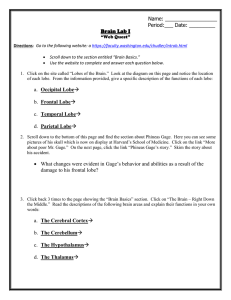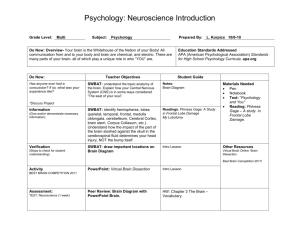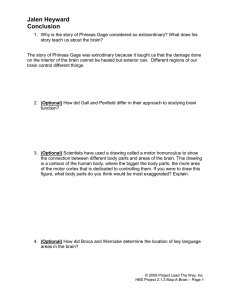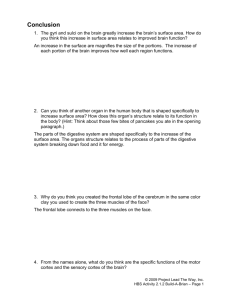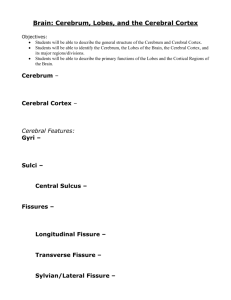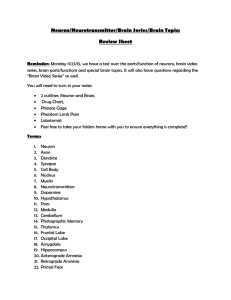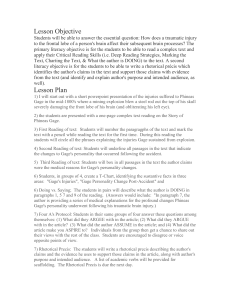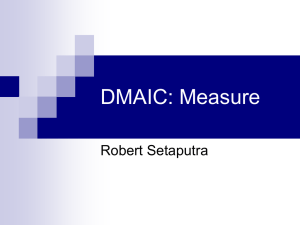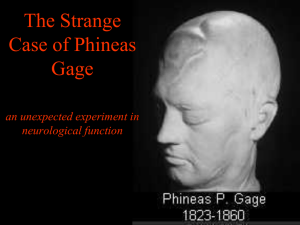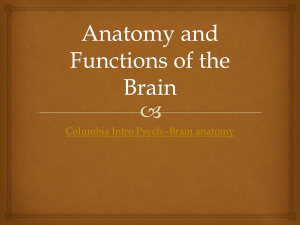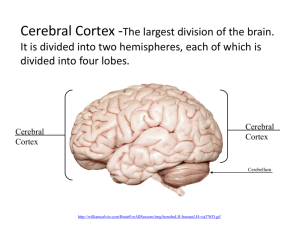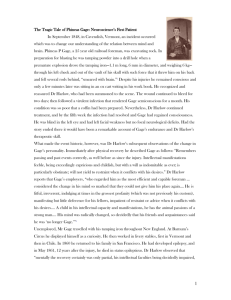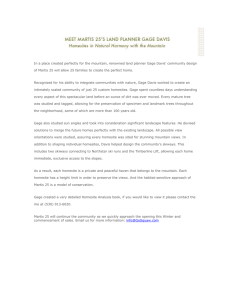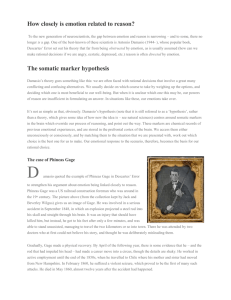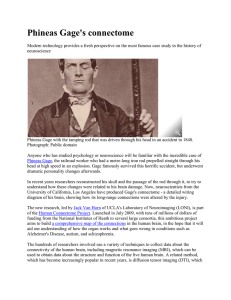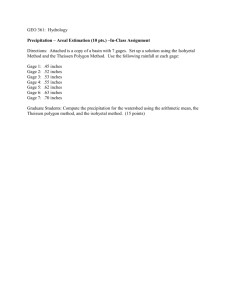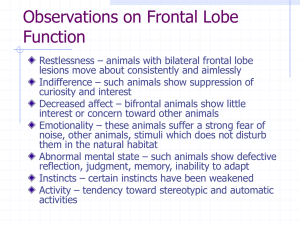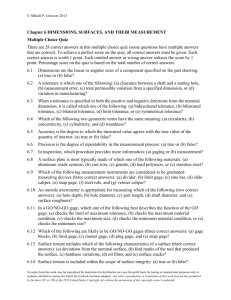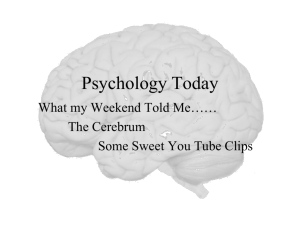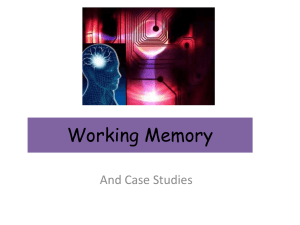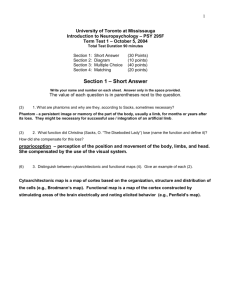Phineas Gage (Lobes)
advertisement
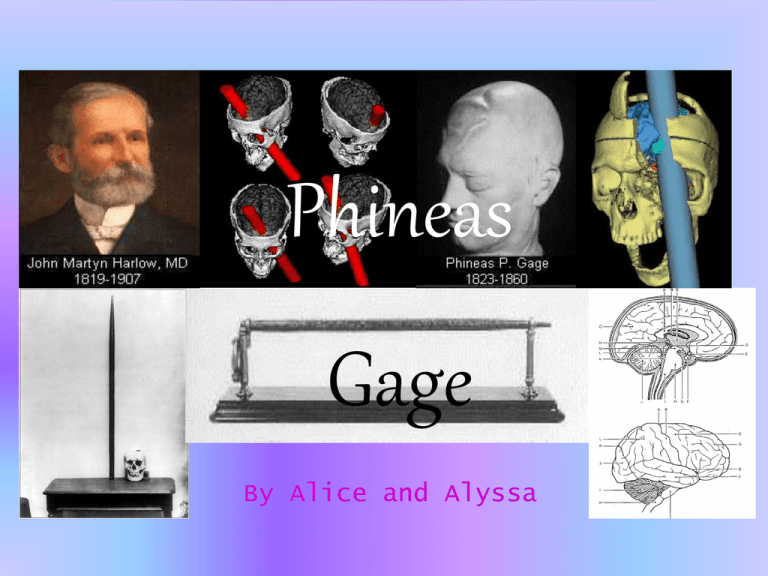
Phineas Gage By Alice and Alyssa The Case of Phineas Gage A metal tamping rod impaled Gage through his left cheek and top of his forehead. Minutes later Gage was sitting up and talking. Months later Gage returned to work. Although having lost his frontal lobe, Gage showed no signs of a changed mental condition. However Gage’s previously reputable personality traits were no more Gage had become “aggressive, uncontrollable and hard to get along with.” Gage had changed. Damage to the frontal lobe can cause: Loss of the ability to solve problems The Frontal Lobe is responsible for regulating temperament, personality and expressing this personality. Near the back of the Frontal Lobe is a section called the Primary Motor Cortex. This cortex controls voluntary body movements, including actions such as kicking your leg. Difficulty with planing and initiating actions, such as crossing the street Difficulty answering a complex question. Changes in personality and self expression Mood swings Receives and processes visual information like shape, colour and motion perception. The Primary Visual Cortex at the base of the Occipital lobe receives information from the visual sensory neurons on the retina and assists the brain in making an image. When damage occurs to the Occipital lobe, the person may experience: Blindness Difficulty with articulation Recognition problems • Responsible for Somasensory information such as temperature. Sensors in the skin, lips, arms pick up these feelings. if you have a large amount of cortical space committed to the sensors in the fingers, your fingers will be ultra sensitive when it comes to feeling the texture of something or more easily controlled when playing an instrument. Damage to the Parietal lobe can cause: Loss of feeling in some areas of the body (Without feeling it would be impossible to tell when you have hurt yourself.) Temporal lobes are involved with hearing, memory and recognition of people’s faces. The Primary Auditory cortex registers different pitches and amplitudes of sounds heard by the ears. Other parts of the Association cortex are involved with storing personal experiences. Damage to the temporal lobes can cause: Mild amnesia. Changes in behaviour Inability to concentrate The loss of equilibrium (balance) Increased initiative and hypotension Damage to the Wernickes: Inability to understand words Problems with comprehension Difficulty with pronunciation Bibliography • http://www.deakin.edu.au/hbs/psychology/g agepage/ • http://www.mc.maricopa.edu/~reffland/anth ropology/anthro2003/origins/phineas.html
